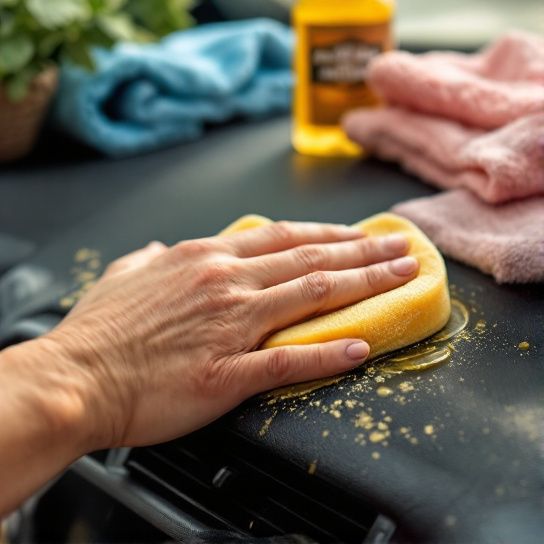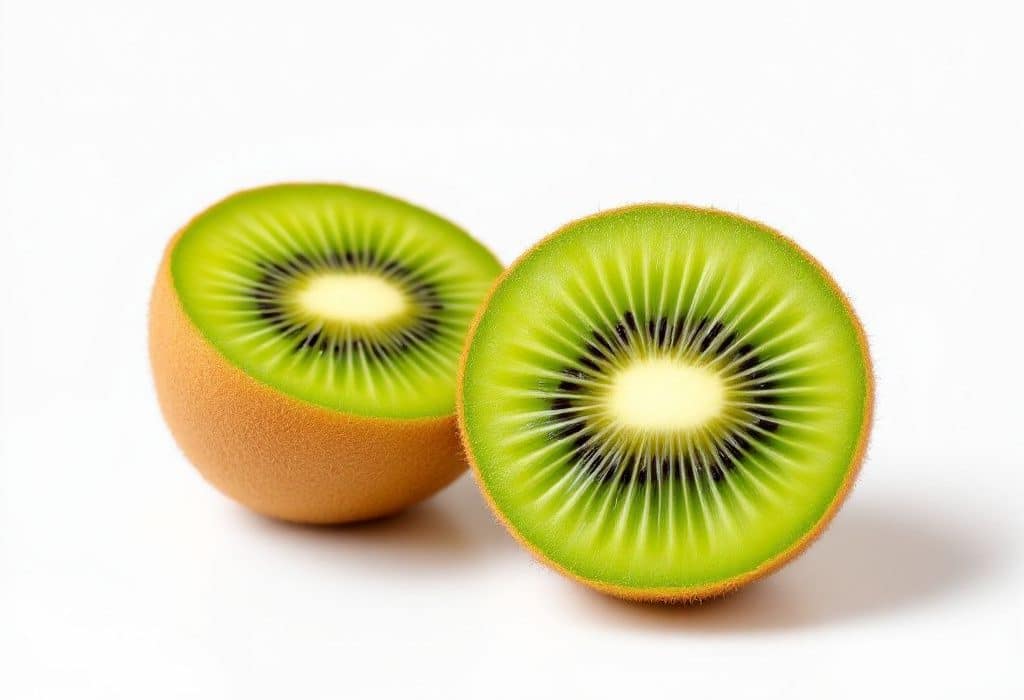Hey there, beauty enthusiasts! Ever heard of the “green gold”? No, I’m not talking about avocados this time. We’re diving into the fantastic world of kiwi seed oil. You might be thinking, “Kiwi… as in the little fuzzy fruit that tastes like a sweet and citrusy surprise?” Yep, that’s exactly it! Kiwi seed oil is gaining quite the popularity in the natural beauty products realm, thanks to its myriad of benefits. It might just become your new best friend, especially if you’re all about harnessing the power of nature for that radiant glow.
The Mighty Little Fruit: Why Kiwi Seed Oil?
Let’s set the scene: You’re navigating through different beauty products at your local store or scrolling through endless options online. Suddenly, kiwi seed oil starts catching your eye. Why? Because its benefits are just too good to ignore! Packed with vitamins and essential fatty acids, its unique formulation offers some seriously transformative effects on the skin.
So, what’s the big deal with kiwi seed oil, anyway?
Nutrient-Packed Goodness
First, consider this little tidbit—kiwi seed oil is a potent source of vitamin C. You probably already know vitamin C is a powerhouse for skin health. It’s like giving your skin a tall glass of fresh orange juice, revitalizing and refreshing. Plus, it doesn’t stop there. Along with vitamin C, you’ll find vitamin E, both of which help to protect the skin from free radical damage. The oil is also rich in omega-3 fatty acids, vital for maintaining the skin’s lipid barrier—trust me on this one, your skin’s health depends on it.
Saying Goodbye to Dry Skin
Now, let’s talk about dryness. You know that feeling when your skin feels tight, maybe a little itchy and definitely not comfortable? Kiwi seed oil can swoop in and save the day. Thanks to its lightweight texture and quick absorption, it penetrates deep into the skin, delivering much-needed moisture right where you need it. Say goodbye to that pesky dry skin, because smoothness is just a few drops away.
Antioxidants for the Win

Did you know kiwi seed oil is loaded with antioxidants? Yep, it’s basically a shield against all those environmental nasties—I’m looking at you, pollution and UV damage. Imagine this: slathering on some kiwi seed oil is akin to suiting up Percy Jackson-style to fight off unwanted skin woes. Pretty cool, right? Antioxidants are like your skin’s personal bodyguards, fending off unwanted wrinkles and dullness.
Incorporating Kiwi Seed Oil into Your Routine
So, you’re intrigued but not quite sure how to roll kiwi seed oil into your natural beauty products routine. No worries, we’ve got some ideas to share!
Start Simple
First up, try swapping out or adding kiwi seed oil to your current moisturizer. Mix a few drops into your moisturizer and apply. Trust me, your skin will drink it up! During cooler months, when skin is especially prone to drying, you might even want to try using it solo.
Face Serums and Masks
Consider this: creating a face serum or mask with kiwi seed oil. If you love a good DIY project, this one’s for you. Just mix it with some aloe vera gel and a touch of rose water for a hydrating mask that smells as refreshing as it feels. Let it sit for about 15 minutes and voila—luxuriously nourished skin!
Match Made in Lip Heaven
Let’s not forget about those lips. They’ll adore the conditioning power, helping to heal chapped lips without any heavy, waxy feel. Just dab a little bit on before your favorite lip balm and you’re gold. Actually, you’re green gold!
A Deeper Dive: Benefits You Can’t Miss
Alright, we’ve scratched the surface of how to use this wonder oil, but what other benefits can you expect from regular application? Let’s break them down.

Enhanced Elasticity
Kiwi seed oil promotes collagen production. The result? Enhanced skin elasticity. So, if your skin’s been feeling a little less bouncy lately, kiwi seed oil supports bringing back that youthful pizzazz. Incorporate this into your skincare, especially during those brutal winter months when skin can need extra help.
Inflammatory Hero
Got puffiness or irritation? This oil doesn’t just moisturize—it’s soothing and calming. The linolenic acid present allows for anti-inflammatory benefits. Say goodbye to redness and irritation; you’ll be greeting a calmer, more even-toned complexion all day long.
Protecting Nature’s Den
Lastly, kiwi seed oil often benefits from being sustainably sourced. Natural beauty products fans who care deeply about our planet as well as their own beauty routine will find resting assured that utilizing kiwi primarily causes no harm to the environment.
Mistakes to Avoid When Using Kiwi Seed Oil
Okay, with any great power comes great responsibility—or something like that. Let’s chuck in some common mistakes folks make with kiwi seed oil, so you don’t have to.
Using Too Much
Remember, less is more. Kiwi seed oil is potent! You don’t need to bathe your skin in it—it’s incredibly efficient. We’re talking just a couple drops for the face, maybe a tiny teaspoon if you’re going all out with a DIY mask.
Allergen Awareness

As much as we love to tout its benefits, always test for allergies first. Do a patch test using a small amount of oil on the inside of your wrist. Watch for any irritation over 24 hours—most people will be fine, but better safe than sorry!
Expecting Overnight Miracles
Real talk: be patient. Natural beauty products are fabulous but require consistency and time. You won’t wake up with instantly rejuvenated skin the next morning unless it’s Cinderella style. Within weeks, though, you should definitely see—and feel—the difference.
Kiwi Seed Oil versus Other Oils
Curious about how kiwi seed oil measures up against other popular oils in the natural beauty products world? Let’s do a quick showdown.
Kiwi Seed Oil vs. Argan Oil
Argan oil is lovely and hydrating, praised for its versatility. However, kiwi seed oil brings in an edge with its vitamin C richness. The choice often boils down to your personal skin needs: hyperpigmentation? Kiwi seed might be more your speed.
Kiwi Seed Oil vs. Coconut Oil
Coconut oil is nourishing and protective but can be too heavy for some skin types. On the flip side, kiwi seed oil’s lightweight nature absorbs quickly without clogging pores, making it tender even for the finickiest skin.
In Conclusion: A Little Green Goes a Long Way
Whether you’re a veteran with natural beauty products or just exploring beyond the basics, kiwi seed oil could very well be the versatile ally you never knew you needed for achieving resilient, radiant skin. Give it a whirl, and watch as the “green gold” seamlessly weaves into your routine, leaving your skin grateful for its new, potentially transformative touch. So, next time you slice a kiwi for its sweet rewards, remember its seeds are packing a beauty secret you’d want on your skincare team. Cheers to vibrant, moisturized skin!
Frequently Asked Questions
What does it mean if a product is labeled as “natural” in the beauty industry?
If a product is labeled as “natural,” it does not necessarily mean it contains no synthetic chemicals. The term “natural” is not strictly defined by the U.S. government, so it is important to read the ingredient list carefully. Natural cosmetics typically contain ingredients like mica, silica, and clay that are found in nature and used without significant chemical alteration[1][3].
Why aren’t all cosmetics natural if they are supposedly better for the skin?
Several reasons contribute to why not all cosmetics are natural. Cost is a significant factor, as organic ingredients are generally more expensive than synthetic ones. Additionally, natural ingredients can be challenging to blend and preserve without using proven chemicals, which are necessary for maintaining the product’s stability and preventing bacterial growth[1][3].
When should someone consider using natural beauty products or skincare?
Consider using natural beauty products or skincare if you have a known allergy to chemical ingredients such as preservatives. However, it is crucial to check the ingredients and perform a patch test, as natural ingredients can also cause allergies. Natural products may be beneficial for those seeking gentler, more recognizable ingredients, but they may not work for everyone[1][3].
What are the potential benefits and challenges of using natural skincare products?
Natural skincare products can be gentler on the skin and more environmentally friendly. They often contain antioxidants and other natural ingredients that can help protect the skin from environmental stressors and promote a healthy complexion. However, natural skincare can be more costly, and the products may have variations in consistency and color due to the natural ingredients used. It is also important to be aware that natural does not automatically mean hypoallergenic[3][5].
References

